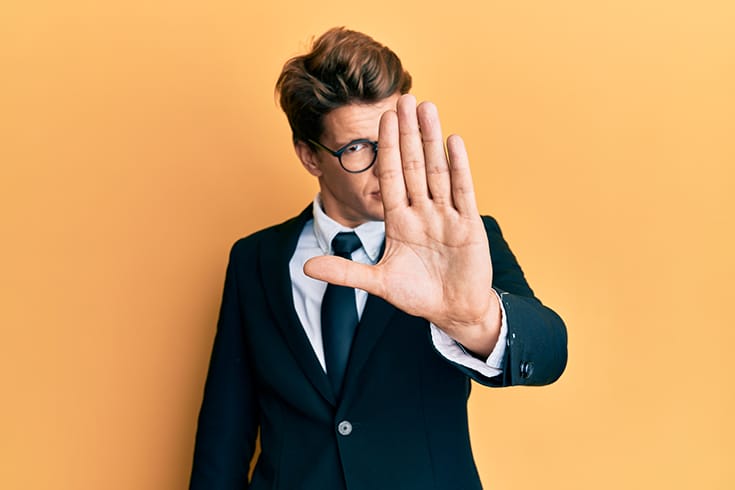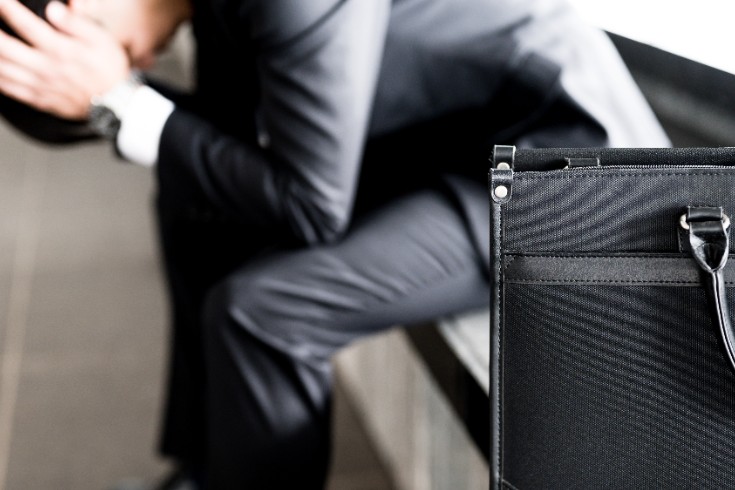Explaining the Japanese Unfair Competition Prevention Act: Requirements and Case Examples for Damages Compensation in Defamation Actions

Acts that damage business reputation can be considered as crimes of credit defamation or business obstruction under the Japanese Penal Code (Penal Code Article 233).
Furthermore, if an act of credit defamation occurs, it is also possible to claim damages due to “tort” as stipulated in the Japanese Civil Code (Civil Code Article 709).
On the other hand, separate from the tort liability under the Civil Code, the Japanese Unfair Competition Prevention Act (Unfair Competition Prevention Law) allows for claims not only for damages but also for cessation and prevention against unfair competition that disseminates false facts damaging business reputation.
In this article, we will explain the requirements for claiming damages based on the provisions of the Unfair Competition Prevention Act, and what advantages there are in such cases.
https://monolith.law/reputation/trust-damage-crime-establishment[ja]
Defamation and Damage to Reputation
Article 230, Paragraph 1 of the Japanese Penal Code stipulates that defamation is established when a person publicly states a fact that defames another’s honor. This “person” is interpreted to include organizations such as corporations, and it has been established in case law that corporations can claim compensation for damage to their reputation as “intangible damage” (Supreme Court of Japan, January 28, 1964).
Generally, in defamation lawsuits, the damages recognized are limited to consolation money, etc., that the plaintiff suffered due to the defamation. It is rare for property damage such as lost profits to be recognized.
However, among defamation cases, damage caused by credit defamation, which lowers the social evaluation of the economic aspect of corporations, etc., may not only be limited to intangible damage, but may also extend to property damage such as termination of transactions and decrease in sales due to loss of credit.
Therefore, if you sue for credit defamation based on the Japanese Unfair Competition Prevention Act, there may be cases where the “provision for estimating the amount of damage” (Article 4 of the same Act) can be utilized.
Even if a credit defamation act has been committed, it is very difficult to calculate and prove the extent of the damage that has a causal relationship with the act based on the Japanese Civil Code.
However, if you base your claim on the Japanese Unfair Competition Prevention Act, you can utilize provisions such as estimating the amount of damage as the amount of profit the infringer received from the act, which reduces the difficulty of proving damage for the right holder.
Also, if you base your claim on the Japanese Civil Code, even if a claim for damages is recognized, it does not necessarily mean that a claim for injunction will be recognized. However, if you base your claim on the Japanese Unfair Competition Prevention Act, there is a possibility that a claim for injunction against the unfair competition act (Article 3 of the same Act) and a claim for credit recovery measures (Article 14 of the same Act) may be recognized.
https://monolith.law/reputation/honor-infringement-and-intangible-damage-to-company[ja]
The Japanese Unfair Competition Prevention Act and Unfair Competition

The Japanese Unfair Competition Prevention Act defines unfair competition as follows:
Article 2: In this Act, “unfair competition” refers to the following:
14: The act of announcing or spreading false facts that harm the business reputation of others in a competitive relationship.
Let’s take a closer look at the requirements for this unfair competition.
Requirement 1 for Unfair Competition: Competitive Relationship
The first requirement for unfair competition is the existence of a competitive relationship.
Defamation and other acts of damaging reputation among non-competitors are not issues under the Unfair Competition Prevention Act, but are treated as general tort issues.
Here, a competitive relationship is defined as “it is sufficient that there is a possibility of sharing demanders or traders in both businesses” (Ministry of Economy, Trade and Industry: Article-by-Article Explanation of the Unfair Competition Prevention Act).
Also, from past court precedents, from the perspective of maintaining fair competition order, if there is a business relationship dealing with the same kind of goods, it is considered to be in a competitive relationship, and even if there is no actual competitive relationship, if there is a possibility of competition in the market or a potential competitive relationship, that is sufficient.
Requirement 2 for Unfair Competition: Others
The second requirement for unfair competition is that the “other party” who is harmed by the act of notification, etc., must be specified.
However, even if the name of the “other party” is not explicitly stated, “if it can be understood who the other party refers to from the content of the notification, etc., and information widely known in the industry, that is sufficient” (Ministry of Economy, Trade and Industry: Article-by-Article Explanation of the Unfair Competition Prevention Act).
Even though it is a specific other party, there is no need to name them. If it can be determined who the other party refers to, the requirement is met.
This “other party” includes companies and other corporations, and individual business operators.
Also, organizations without legal personality, such as academic societies (associations without legal capacity), also become “others”, but since they need to be specific others, they are not usually considered “others” in cases where the reputation of the entire industry is damaged.
Requirement 3 for Unfair Competition: False Facts
The third requirement for unfair competition, “false facts”, refers to facts that contradict objective truth.
“Whether the actor himself fabricated it or someone else fabricated it, even if the expression is softened, if the substantial content of the expression contradicts the facts, it is included” (Ministry of Economy, Trade and Industry: Article-by-Article Explanation of the Unfair Competition Prevention Act).
Also, “whether the actor himself fabricated it or someone else fabricated it”, even if the actor knew that the content of the notification or dissemination was false, of course, just because he misunderstood it to be true, it does not mean that he can avoid the establishment of unfair competition.
Even if it is a criticism of the performance or quality of a product, if it does not contradict the objective truth, it is not a false fact, but for the notification or dissemination of facts, even if the facts are not determined, “it may be” or “there is a possibility” such as “softened expression”, if the “substantial content of the expression contradicts the facts”, it may be a false fact.
Requirement 4 for Unfair Competition: Announcement and Dissemination

The fourth requirement for unfair competition, “announcement”, refers to the act of individually transmitting false facts to a specific person.
For example, informing a customer who comes to the store about the defects of a competitor’s product, notifying a trading partner of a competing company in writing, etc., fall under this category.
“Dissemination” refers to the act of conveying false facts to an unspecified or large number of people. For example, posting articles on the Internet falls under this category, and placing advertisements on newspapers that slander a competitor’s product also falls under this category.
Court Cases Involving Unfair Competition
Based on Article 2, Paragraph 1, Item 14 of the Japanese Unfair Competition Prevention Act (不正競争防止法), we will examine how these requirements are judged in actual court cases by looking at examples where damages were sought.
Litigation Surrounding Unfair Competition
The defendant company, claiming to hold the patent rights for a device called a bracket used in orthodontic treatment, notified Company A, a trading partner of the plaintiff company, by email that the plaintiff’s product, which is manufactured by the plaintiff’s U.S. corporation and imported and sold by Company A, was infringing on their patent rights. As a result, Company A had no choice but to stop importing and selling the plaintiff’s product.

According to the defendant company, B and C, who are executive directors of the defendant company, jointly invented the product in question and applied for a patent with the two as joint inventors.
However, in reality, the defendant company had not received a transfer of patent rights from B, and the patent application in question was a false application made by a person who did not have the right to receive a patent.
After about three years of sales suspension, when the plaintiff company learned of this and resumed sales, they claimed that the defendant company’s patent rights were invalid, and therefore, the notification to Company A by the defendant company was a false fact notification, which falls under the unfair competition act specified in Article 2, Paragraph 1, Item 14 of the Unfair Competition Prevention Act, and sought damages.
Whether it Constitutes Unfair Competition or Not
The court stated that the warning to Company A by the defendant company was a notification of the fact that the plaintiff’s product, which Company A imports and sells from the plaintiff company, is a patent-infringing product, and therefore, it is a notification of a fact that harms the business reputation of the plaintiff company.
And, since the patent related to the invention in question was a false application, the patent right is considered to have never existed from the beginning (Article 125 of the Japanese Patent Act (特許法)), the import and sale of the plaintiff’s product by Company A does not infringe on the defendant company’s patent rights, and the defendant company cannot exercise rights based on the patent rights.
Therefore, the defendant’s notifications to Company A, despite the fact that the patent related to the invention in question does not exist, notified the fact that the import and sale of the plaintiff’s product infringes on that patent right, and it is appropriate to recognize it as a false fact notification.
Tokyo District Court, February 17, 2017 Judgment
The court also stated that.
The defendant company argued that “the act of stating the fact of rights infringement to the person who is suspected of rights infringement does not constitute unfair competition under Article 2, Paragraph 1, Item 14 of the Unfair Competition Prevention Act,” but the court stated,
Although Company A is the person who is suspected of rights infringement, the business reputation of the plaintiff, who is the manufacturer of the plaintiff’s product, is harmed, not Company A, by the notifications to Company A. Therefore, the above-mentioned notifications should be considered as “false fact notifications that harm the business reputation of others.”
It also stated that.
Since it is clear that the plaintiff company and the defendant company, both of which sell brackets to be attached to teeth during orthodontic treatment, are in a competitive relationship, the defendant company’s act of “notifying or spreading false facts that harm the business reputation of others in a competitive relationship” was recognized as unfair competition under Article 2, Paragraph 1, Item 14 of the Unfair Competition Prevention Act.
Existence and Amount of Damages

The Unfair Competition Prevention Act defines damages as follows:
Article 4: A person who intentionally or negligently commits unfair competition and infringes on the business interests of others shall be liable for the damages caused thereby.
Based on this, the court calculated the profit for the approximately three years during which sales were suspended as damages. The average annual sales number was calculated from the sales numbers for the year before and the year after the sales suspension, and the possible sales quantity for three years was estimated. This was multiplied by the sales unit price, and the amount of raw material costs and subcontracting costs was subtracted.
As a result, the estimated lost profit of 127,174.5 U.S. dollars and attorney’s fees of 13,000 U.S. dollars, for a total of 141,174.5 U.S. dollars, were recognized as damages.
As shown, if you sue for defamation based on the Unfair Competition Prevention Act, damages will be estimated.
In this case, it was only an email to the sales company, and it was not widely “spread,” so the plaintiff did not seek an apology advertisement, but if it had been widely notified and spread on the Internet, it could have been a case where an apology advertisement could be sought.
https://monolith.law/reputation/credit-damage-litigation[ja]
Summary
When a company’s reputation or creditworthiness is damaged, it can be difficult to primarily evaluate the amount of damage in monetary terms, and proof is often difficult. However, if you seek damage recovery based on the Japanese Unfair Competition Prevention Act, the court will calculate the amount of damage at its discretion.
If your company’s reputation or creditworthiness has been tarnished, you may be able to claim damages based on the Japanese Unfair Competition Prevention Act. Please consult with an experienced attorney.





















